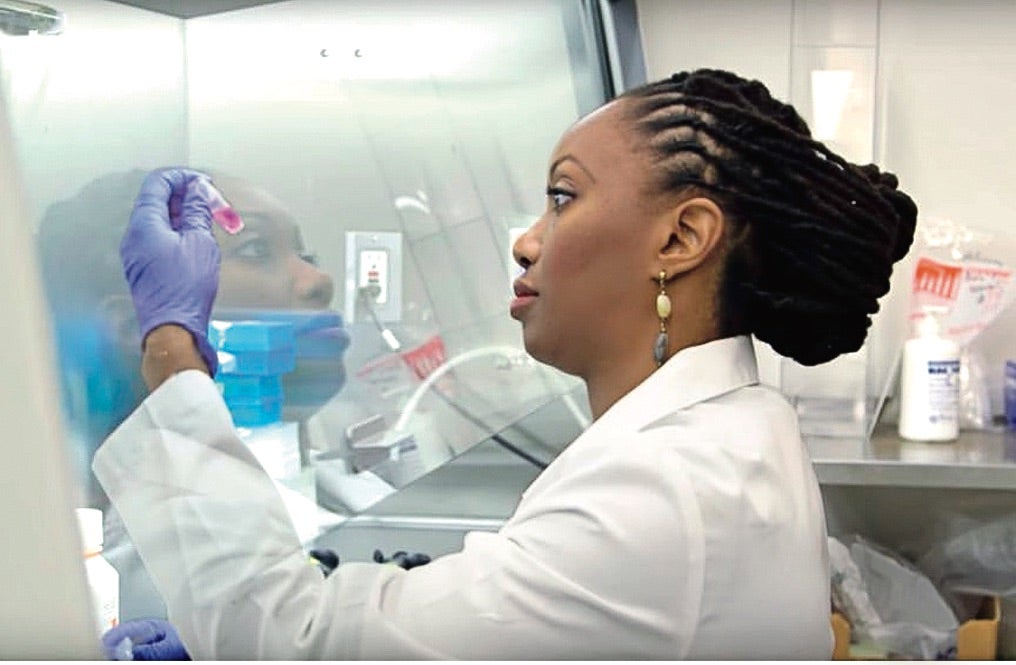Hadiyah-Nicole Green’s life got off to a rocky start. After her mother passed away when she was a toddler, Green and her older brothers were taken in by her grandparents. Sadly, when she was just 4, her grandparents died as well. That’s when her aunt, Ora Lee Smith, and uncle, General Lee Smith, stepped in. “They were really old enough to be my grandparents,” the St. Louis native says of her beloved aunt and uncle. Fortunately, their community also pitched in. “I felt like the child the village raised.”
The Smiths weren’t rich, but they provided a loving and supportive environment for their niece, and she flourished. She played high school sports, held student government leadership positions and attended Alabama A&M University on a full academic scholarship, graduating with a degree in physics. But soon after Green walked across the stage to pick up her diploma, her aunt delivered devastating news. “The day after graduation, my aunt announced that she had cancer and would rather die than experience the side effects of chemotherapy and radiation,” she recalls.
Green stepped up to take care of her aunt for the last three months of her life, but she was dealt another blow when her uncle was diagnosed with cancer shortly after his wife died. Unlike Green’s aunt, he opted for chemotherapy, but the outcome was sadly the same. “It was awful. Had I seen him walking down the street, I would not have recognized the man who raised me,” she says. “That broke me down.”

Watching her uncle deteriorate inspired the physicist to find a better way to treat the disease. “I saw firsthand the horrors of cancer and made up my mind that I was going to develop a cancer treatment that didn’t have the side effects of chemotherapy and radiation so that people wouldn’t have to opt out of it like my aunt did,” she explains. Nor would they be reduced to a shell of their former selves the way her uncle was. After more than a decade of research, Green developed a laser technology that has successfully treated cancer tumors in mice. Now she’s attempting to raise $10 million through the Ora Lee Smith Foundation to begin human trials. “Doing this in her honor was symbolic to me,” she explains. “And it was healing for me to keep her memory alive.”
While losing her aunt and uncle was extremely difficult, Green is thankful that she may be able to help others avoid the same fate. “If something shakes you to your core, let it, because it may be God’s way of nudging you to your life’s purpose,” she says. “I really do believe that these experiences have put me in alignment with my divine assignment. This is my ministry and my mission.”
This profile appeared as part of a larger story inside the July/August 2019 issue of ESSENCE. Check back next week read the next incredible survivor story.
